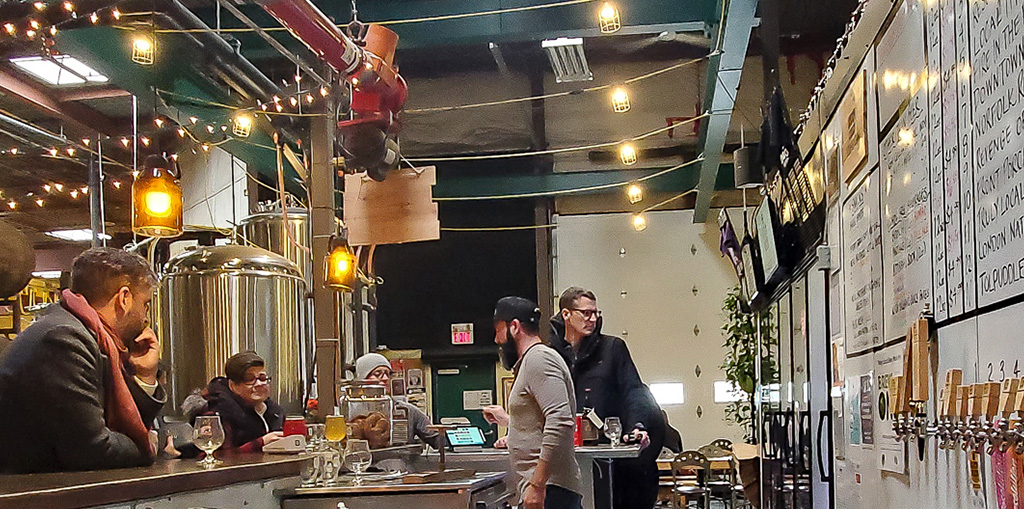
The third co-operative principle is Member Economic Participation. It states, “Members contribute equitably to, and democratically control, the capital of their co-operative. At least part of that capital is usually the common property of the co-operative. Members usually receive limited compensation, if any, on capital subscribed as a condition of membership. Members allocate surpluses for any of the following purposes: developing their co-operative, possibly by setting up reserves, part of which at least would be indivisible; benefitting members in proportion to their transactions with the co-operative; and supporting other activities approved by the membership.”
In a worker co-op, member economic participation is a necessary but insufficient principle among the seven co-op principles. On the one hand, it is a break from traditional businesses where workers are generally not expected to help capitalize the business nor do they share in its profits. On the other hand, a co-op isn’t living up to the other six principles if economic participation is the only concern of its members. In a sense, member economic participation is primarily a means to an end, a way of helping to ensure that worker-owners can earn a decent living with a high quality of work life and that their work benefits people, not capital.
Member economic participation in a worker co-op is a two-street in which capital flows back and forth between members and the co-op, but for many it seems subordinate to other priorities such as sustainability, community, and values. According to Co-operatives UK’s Worker Co-op Code, “Members contribute equitably to, and democratically control, the capital and finances of their co-operative. Members decide how to use surpluses (profits).” In return, “worker co-operatives should provide the pay and other benefits that members need and want, managing the business to provide them and protect its future.”
For David Thuss of London Brewing, economic participation is just one of the factors the Co-op considers when it comes to prospective members. While he believes that being able to contribute to the Co-op financially is important, he considers it secondary to whether the person is committed to London Brewing’s emphasis on sustainability and building community.
“When considering somebody’s membership, it’s beyond just do you have the ability to invest in the preference share?” he says, “but more so, do they reflect the values of the co-operative?”
Thuss also believes that just as the contributions a member makes to a worker co-op aren’t solely financial, neither are the rewards they reap from participation. Although London Brewing pays all its salaried members a living wage, and is on track to eventually do the same for hourly employees, Thuss believes the key to member satisfaction is the ability to engage in decision-making regarding the co-op’s budget, vision, and other areas.
“I think having the knowledge that you’re helping to shape the vision and the direction of the co-operative,” he says, “are the pieces where co-operatives can do a lot more for job satisfaction than traditional businesses that don’t engage in an all-out democratic process.”
Deborah Desilets of Nelson’s Kootenay Bakery Cafe’ Cooperative agrees that member economic participation is important, but believes that it’s just as critical that members be participants in the community as well as the Co-op. And the benefits of this approach, she believes, extend to both.
“The responsibility is the benefit. You’re responsible to make sure the business is run well so you’re on a committee, etc. The benefit is that you’ll learn skills, and that’s not just good for the members but also good for the community because we’re building leaders, people who are responsible to their community visibly.”
The International Cooperative Alliance’s Guidance Notes to the Co-operative Principles bring a somewhat different perspective, and speak to the nuanced and complex nature of this principle. The Notes state that, “the key economic concept enshrined in (Principle 3) is that in a co-operative capital is the servant, not the master of the enterprise. The whole structure of co-operative enterprise is designed around the concept of capital being in service of people and labour, not labour and people being in servitude to capital. The key question addressed in this 3rd Principle is: “how do we make this work?” Like everything to do with money, this 3rd Principle is the most sensitive and challenging part of the Co-operative Principles, though not necessarily the most important. Indeed, this 3rd Principle is mainly a financial translation of the definition of the identity of a co-operative and of the financial implications of the 2nd Principle of Member Democratic Control.”
Thus the third principle is important. However, it must rest on a base created by adherence to other co-operative principles and to co-operative values, of which it is in part a reflection.